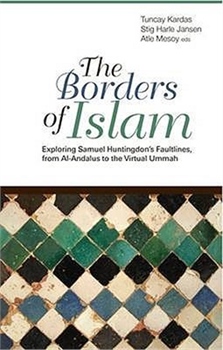Description
In his seminal work "The Clash of Civilisations", Harvard professor Samuel P. Huntington claimed that conflict between cultural blocs, or civilizations, will dominate the future. More controversially, he predicted that future conflicts will occur on the borders between Western and Islamic civilisations. The statements of Osama Bin-Laden seem to support his views: 'This battle is not between al-Qaeda and the US,' he said in October 2001. 'This is a battle of Muslims against the Global Crusaders. 'This specially commissioned set of essays sets out critically to examine the border zones of Islamic civilisation, be they geographical, cultural or virtual. The contributors explore the local dynamics in these zones to test whether or not they support or contradict Huntingdon's thesis of an emerging global confrontation between Islamic civilisation and its neighbours, be they Christian, Hindu, Buddhist or godless.Among the borders discussed are those where Muslims are the majority (Afghanistan, Bosnia, Chechnya, Ethiopia, Indonesia, Somalia,Pakistan, Turkey), those with very large Muslim minorities (Philippines, Nigeria, India) and those where new faultlines have been created, either through migration (France, the United Kingdom, the United States, Spain) or technology (the internet). A commonthread running through the book is whether the rise of international Salafi jihadism can be traced to countries on the faultline between Islam and the non-Islamic world. The contributors conclude by arguing that many of the border regions of Islamic civilisation are influenced by mechanisms far more complex than those highlighted in "The Clash of Civilisations", suggesting that poverty and institutional failure, both often the result of war, tend to heighten religious awareness and practice, but that the effects of these phenomena differ from those suggested by Huntington.
